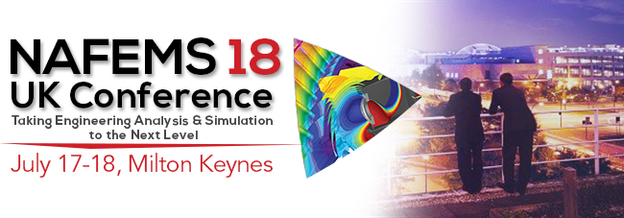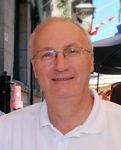
Keynote
Speaker
Professor Jim Boyle
Mechanical & Aerospace Engineering - University of Strathclyde, Glasgow.
Title
Big Simulation – Future Issues
Abstract
The ambition of this First NAFEMS UK Academic Symposium is to “… address issues facing individuals and organisations engaged in education and training, in support of the effective use of analysis and simulation technologies …”. The aim of this presentation will be to explore and debate the theme of the symposium – Big Education/Simulation Issues. Having observed the development of simulation software for over forty years, being an active user while also committed to innovation in engineering education during this time, a conviction has emerged that a tipping point has been reached. This conviction is based on the belief that current (and future) simulation software capability has outpaced other equally important aspects of the engineering design and analysis process: advanced materials modelling, materials testing and design codification among others. If it is generally agreed that this is the case, then there are significant implications – both good and bad – for engineering education going into the future. These future issues will be developed in this presentation.
Biography: Professor James T. Boyle
BSc PhD DSc MIMA CMath

Department of Mechanical & Aerospace Engineering, University of Strathclyde.
1st Class Honours Degree in Mathematics. Lord Kelvin’s Prize in Mathematics. PhD in Mechanical Engineering. DSc in Mechanical Engineering for innovative research contributions in high-temperature design, 1989. Full Professor in Mechanical Engineering since 1990. Head of Department from 2000-2006. Visiting professorial appointments in the USA, Sweden, Japan, Tunisia (UNESCO), Poland, Russia and Brasil.
Main areas of research lie in nonlinear continuum mechanics, in particular, the application of modern mathematics to inelastic and micromechanics, and computational mechanics with special reference to high-temperature design problems. Major practical applications continue to lie in the field of pressure vessel and piping design and design by analysis. Around three hundred research papers, three monographs, and numerous industrial reports. Invited lectures in sixteen countries and nineteen Plenary Lectures.
For the past twenty years, considerable effort has been applied to bring about a major change in engineering education through a re-emphasis on teaching and learning. Developer of the New Approaches to Teaching and Learning in Engineering project which aims to introduce active, inquiry-led learning into the curriculum through Socratic Dialogue and Peer Instruction in large classes, a version of Problem-Based Learning applied to design teaching and the use of Studio Teaching. Teaching classes have been visited by over one hundred and fifty academics from the UK, Europe and the USA; invited lectures, workshops and seminars in over twenty UK and European universities and Keynotes at various conferences.
